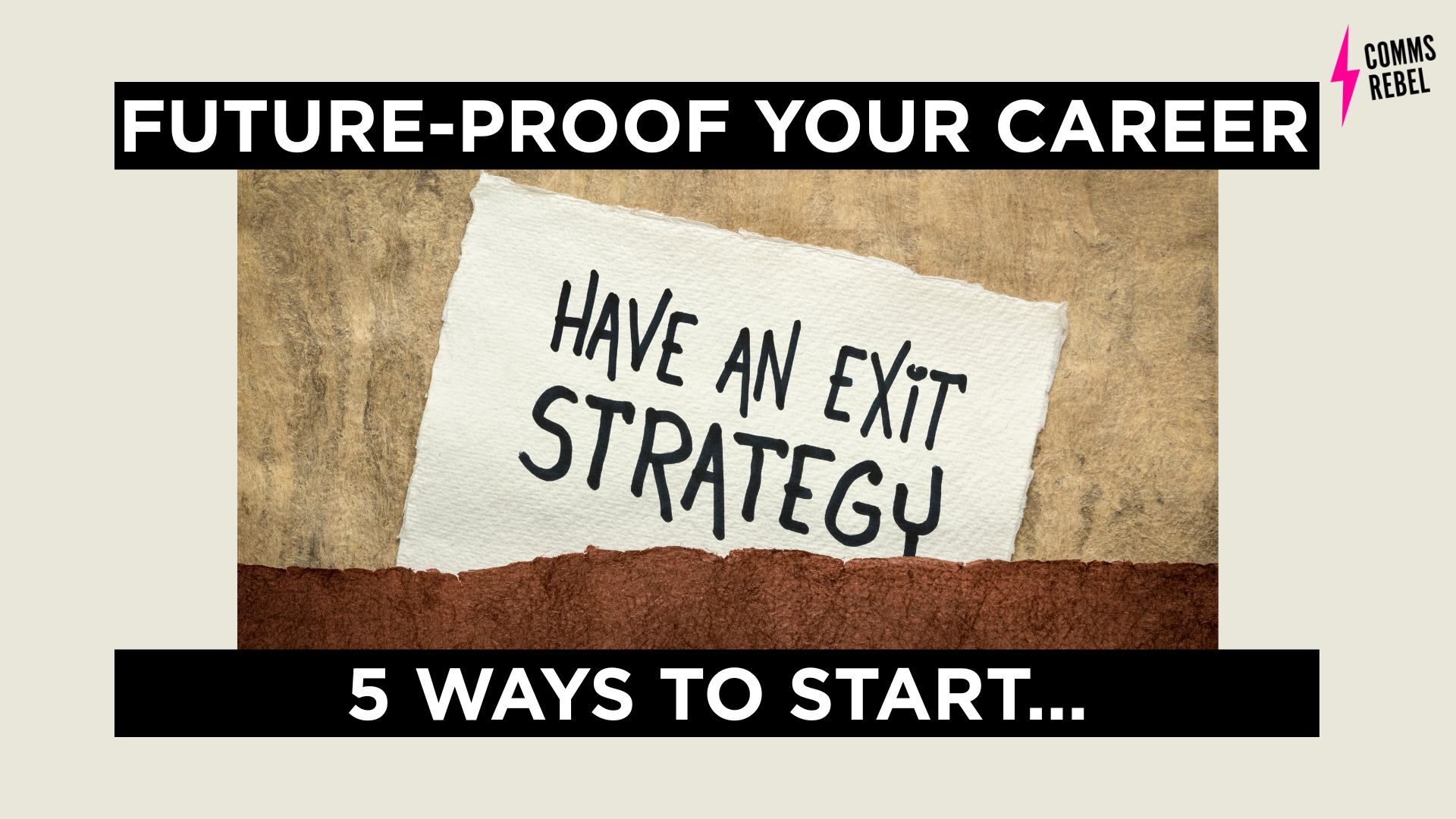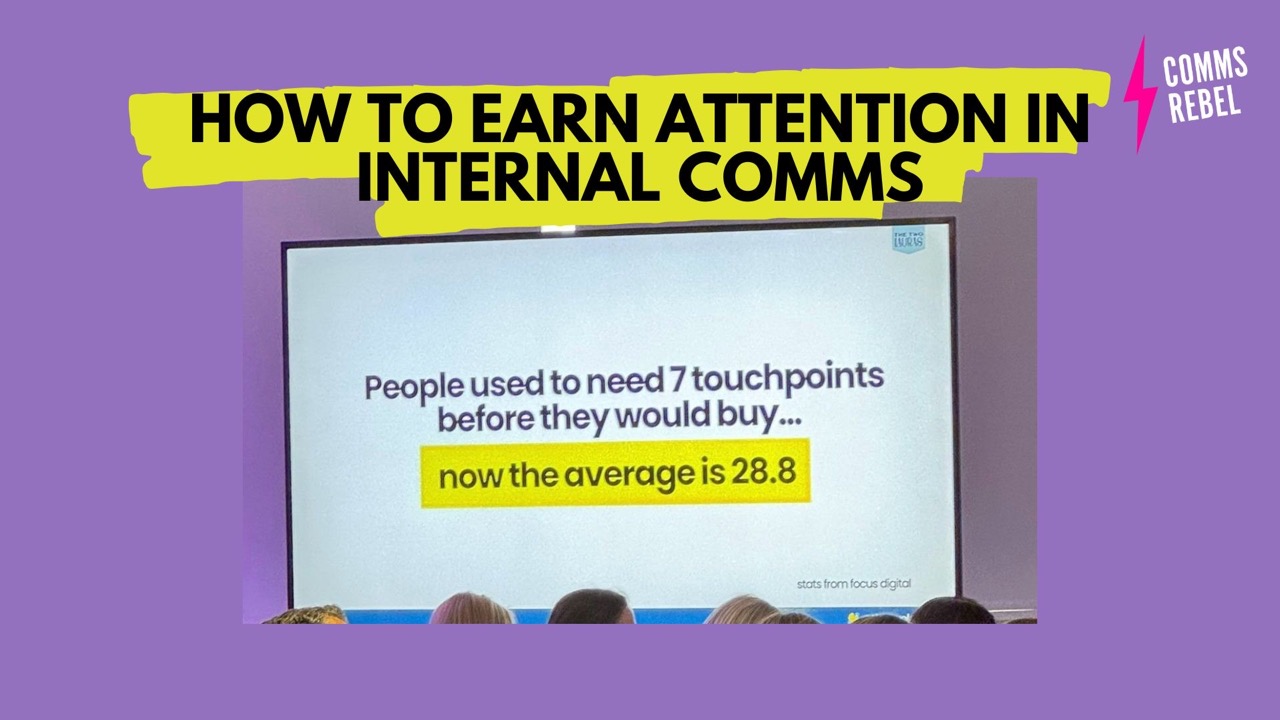The State of Profession was published this morning and it was a mixed bag of emotions for me. It was great to read that we are seeing some things move in a positive direction such as salary and investment in teams. I was also chuffed to read that if you’re chartered and have a qualification, you’re more likely to get paid more! And even though this was great news I was really disheartened to see the mental health and diversity results.
The report shows that mental health impacts almost 1 in 4 of us with many taking a sick day due to stress, anxiety or depression. This isn’t a total shock as I’ve seen first-hand the impact our jobs can have on our mental health. We take a lot on our shoulders and often with limited recognition. The report also stated that those of us who do tell our line managers about our mental health, almost a quarter of managers don’t take it seriously but heartening to see the majority do (thanks Chuck Gose for pointing this out!). The lack of support, in my experience, is normally down to a lack of education. Which is one of the key reasons we’re going to be talking about mental health and IC with the fabulous Jo Hopper on 1 May, so make sure you grab yourself a ticket.
I was also sad to see diversity in the PR profession has gotten worse since 2018. The findings show that Black, Asian, Minority Ethnic (BAME) representation is at a five-year low, with 92% of practitioners describing themselves as white. Which was surprising especially as U.K. schools show that 31% of primary children are ethnic minority, yet only 8% of PR professionals are from this background.
We all know there has always been a problem with diversity within our profession. It’s a subject that’s often discussed over and over again, yet we still don’t seem to be making any traction. I know it’s not for the want of trying as we’ve seen some great initiatives developed (BME PR pros, Sarah Hall’s fantastic new charity Socially Mobile, the Taylor Bennett foundation) but we are still not seeing many diverse faces in the industry, especially in senior board roles.
In fact in the 15 years I’ve worked in comms I’m yet to actually meet a BAME Comms Director working in an in-house role. I don’t think we should have to wait another 15 years to see that change.
I have to admit though, the colour of my skin is just another thing I add to the list of diverse things about me. I’m also a woman, I haven’t been privately educated nor did I go to a red brick university and I live in the north of England. Even though I’m a fairly confident person and I’m comfortable with who I am, I did start to think about my career path. Which led me to wonder what life would have been like if I was a white man, who was privately educated working in PR.
Would people talk over me in meetings? Would I be told to take notes because the PA is off sick? Would I receive a promotion because I played golf with the boss? Would people slow down their speech because I said I didn’t understand what they were asking for? Would people ask me if I’m going to have children? Would I be asked if I miss ‘home’? Would a CEO completely ignore me and talk to the junior assistant who happens to be a man? Would I be completely bypassed for a handshake as the director wasn’t sure he could touch me? Would people confuse my beliefs as we all look the same? Would I repeatedly be called another persons name because we have the same skin colour but don’t look anything like each other?
I doubt it.
Those things have happened either to me or some of my friends over the last 15 years. To be honest, I just brushed it under the carpet at the time and tried to move on. I know there will be people shaking their heads and they will probably deny that race or gender played a part but whether it was intended or not, it’s all down to how you make that person feel in that current situation.
I work hard to always be the best I can possibly be but things like this can knock your confidence. There have been situations which have made me think several times whether or not I was in the right profession and if I’m just flogging a dead horse. Thankfully due to the support of my network I always crawled out of these slumps and pushed away my insecurities.
But I’m very aware that others are not lucky enough to be surrounded by an amazing network. If you’ve faced discrimination every single day of your working career and you have no one to lean on, then it can break you. You feel worthless and ashamed of who you are. Which will lead to your family to ask why you’re bothering with that career path or worse still, they tell you to keep your head down and be grateful. Luckily my family and friends have been nothing but supportive. For those BAME folk who don’t have that, they will almost certainly step away from the industry or least the give up on the idea that they can gain a more senior position.
Which is one of the reasons I decided to play an active part within CIPR. I didn’t want to sit on the sidelines and complain about how unfair life is. Yes it can be unfair but I’ve always believed in being the change you want to see. I stepped out of my comfort zone, put myself out there and set about trying to make a difference. Is it hard work? Yes it is but it will get easier if more people start to work together, call out bad behaviour and inspire others to do the same.
I want BAME girls and boys to see someone who looks like them, knocking it out of the park and realising it’s not an impossible dream. But to make a significant impact we all need to work together and ensure that everyone plays their part in diversity and inclusivity, regardless of gender, race, sexuality etc.
So what can we do to start making a change?
1) Encourage people to ask questions. Often people don’t engage in diversity or inclusivity because they don’t know what to say or do. If people genuinely make a mistake about something then don’t shoot them down, explain calmly why they were wrong. I spent almost 15 years brushing things under the carpet and I wish I spoke up sooner. But if they do it over and over again then that’s a different matter.
2) Call it out if you see something that’s not fair. This doesn’t just apply to race. If you’ve noticed that your business is only shortlisting candidates from Oxford Uni for example, then ask why? Ask your HR team where jobs are being posted? Often you’ll find they haven’t even considered different avenues as they are so used to the norm.
3) Work with local schools and colleges. If we can get to the younger generation and share with them what it means to work in PR and comms then we’ve already got the ball rolling. Find out from your local high schools if they host career days and if they would like someone to come to talk to students.
4) Put yourself out there and get to events. I know it’s awkward and it can be overwhelming but not going and hiding away will not help increase visibility. Also put yourself forward to speak at events. If you’re hoping someone will knock on your door then you might be waiting a while as they probably don’t know where to find you. Take it from someone who has been organising a conference for the past few months. It can’t always be on the organisers head, if they don’t know where to look then light the path for them.
5) Finally don’t give up or in. If you’re struggling and finding it tough then reach out to someone. Don’t be worried about messaging someone on LinkedIn or twitter to ask if they can be your mentor or coach. Sometimes a good listener can make all the difference.
Let’s see if together we can get that 8% into the teens by 2020.
Who is with me?
P.S: If you are a BAME pro in a senior IC or Comms Director role, please get in touch!
You can read the report here: State of Profession.


